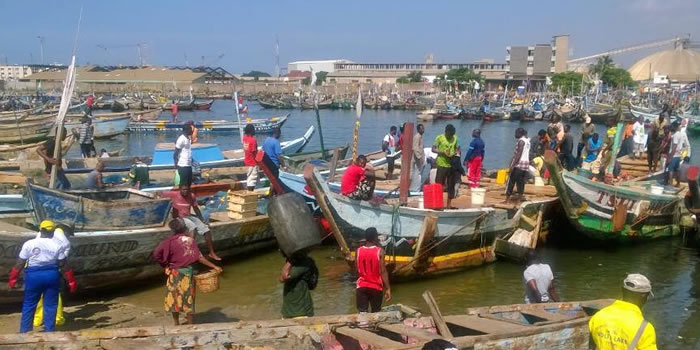Adverts
AGRICULTURE
Marine Researchers call for redirection of fuel subsidies to avert overfishing
Experts in marine sustainable management are calling on government to redirect premix fuel subsidies into other coastal development initiatives.

Date Created : 8/22/2019 6:58:39 AM : Story Author : Dominic Shirimori/Ghanadistricts.com
This, they noted would help reduce decline fish stock and enable the country reap the full benefits of the sea.
Professor Rashid Sumaila, Director of Fisheries Economic Research Unit of the University of British Colombia, Canada in his keynote presentation on the topic: Global trends in fisheries in the context of blue economy: Implications for Ghana, at the 2nd Conference on Fisheries and Coastal Environment, in Accra said fuel subsidies work against sustainable development goals in the fishing industry, adding that it rather forms a major contributor to overfishing across the globe.
He however maintained that the sector needs more subsidies to support those in the sector, but in different areas that will promote sustainability, health of the sea and improved economic fortunes of those engaged in the sector.
He argued that a lot of economic possibilities abounds that can be harnessed by government to achieve more than it is currently getting, citing investment in beach tourism, paying fishermen to clean the sea particularly of plastic wastes, aquaculture development among others.
Professor Sumaila also disclosed that fuel subsidies to fisher folks put artisanal Fishers at a disadvantage since the big trawlers turn to benefit more because it allows them to travel far and stay longer at sea just harvesting anything they find to the detriment of the canoes.
The three days conference organized by USAID/Sustainable Fisheries Management Programme (SFMP) in collaboration with the University of Cape Coast Fisheries and Coastal Management and Capacity Building Project and the Fisheries Commission was on the theme: “Fisheries and Coastal Governance in Contemporary times. It aimed at highlighting the achievements, opportunities, challenges and identifying the way forward in sustainable management of fisheries resources.
He urged government to among other things remove incentive to overfishing including fuel subsidies, and reduction in fleets of all sizes; improve national fishing management; push for regional cooperative management; make illegal fishing unprofitable; as well as observe seasonal closure of the sea.
The Acting Mission Director, USAID/Ghana on his part was delighted that the collaborative efforts between USAID and Ghana brought about some significant progress in the fishing sector particularly in improving fishing management, bolstering law enforcement against those who flaunt fishing regulations, improved smoked fish value chain among others.
He said USAID want to see Ghana succeed as the sector accounts for at least 1.2 percent of Ghana's Gross Domestic Product and provide livelihoods for nearly 2.5 million people in the country.


 facebook
facebook X (twitter)
X (twitter) Youtube
Youtube +233 593 831 280
+233 593 831 280 0800 430 430
0800 430 430 GPS: GE-231-4383
GPS: GE-231-4383 info@ghanadistricts.com
info@ghanadistricts.com Box GP1044, Accra, Ghana
Box GP1044, Accra, Ghana